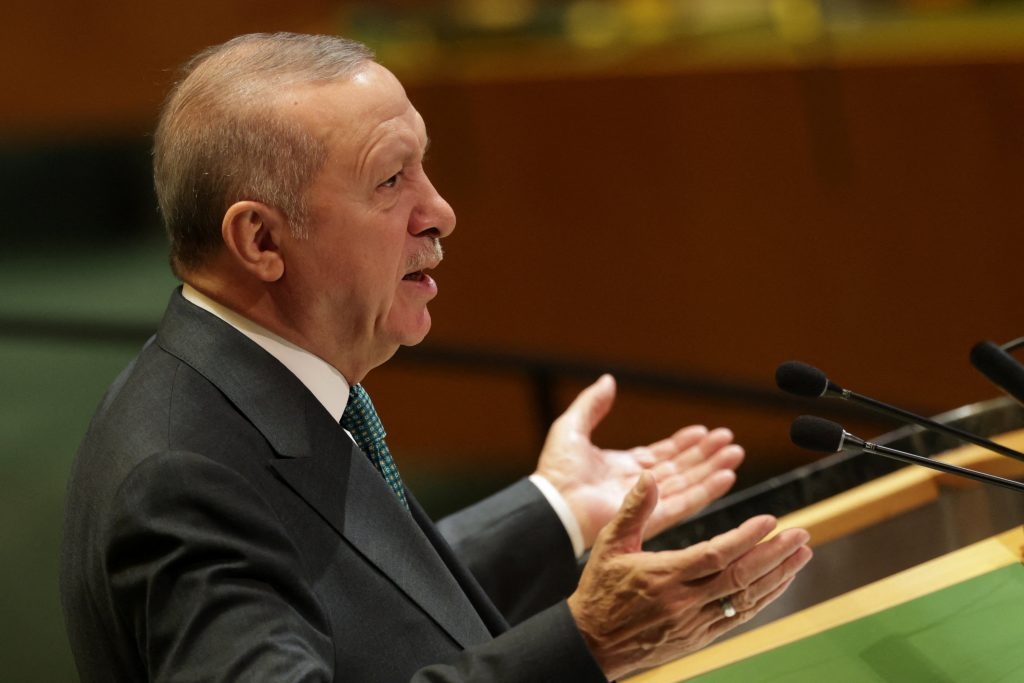Turkish President Recep Tayyip Erdogan on Tuesday repeated his call for recognition of the Turkish Cypriot pseudo-state from the podium of the UN General Assembly, something he’s done in previously such addresses to the body.
Moreover, in a similarly ominous tone, Erdogan warned that the “Turkish Republic of Northern Cyprus”, as the occupied part of the island republic is called by Ankara, has rights to the west of the east Mediterranean island, a reference to maritime zones.
Energy issues
Turning to a standing antagonism in the Aegean, Erdogan again repeated that Turkish foreign policy remains committed to a distribution of whatever energy resources in the specific body of water and “further east”. Along these lines, he said no energy program can proceed in the wider region “without Turkey’s participation” – another inflammatory leitmotif favored by the Turkish president and his top ministers.
The Turkish president comments, while not new, come in light of two energy-related developments now on the horizon in the central and eastern Mediterranean, namely, interest by multinational Chevron for hydrocarbon exploration south of Crete in sea blocks tendered by Greece, as well as continued interest in laying a power cable across much of the eastern Mediterranean to connect the power grids of Israel and Cyprus with mainland Greece. The latter is the ambitious but also delay-plagued Great Sea Interconnector (GSI) undersea cable project.
In terms of the former, successfully tendering blocks for hydrocarbon exploration by energy multinationals above the “median line” between Crete and the Libyan coast would in practice negate the 2019 Turkey-Libya maritime delimitation agreement. Athens, other regional capitals and the EU consider the latter as baseless and illegal.
Turkish President Recep Tayyip Erdogan’s address begins at the 3:15-hour mark.
Aegean
In reference to Greece, Erdogan switched to a more conciliatory tone, saying he and his government want to see the Aegean Sea as a basis for growth and peace. He continued by saying Ankara is ready to cooperate on energy matters with Greece, “and we expect the same response”.
Cyprus
The conciliary tone, however, did not continue when he referred to Cyprus, as he again blamed the Greek Cypriot side over the fact that no solution for the divided island has been found to date. Similar to previous addresses at the UN, he said the Turkish Cypriot community will never accept being a minority on the island and he called on the international community to not only recognize the pseudo-state but also to develop economic relations with the entity.
Only Turkey, the occupying power of one-third of Cyprus, recognizes the TC pseudo-state.
Other “talking points” expressing Ankara’s standing policy included the call to end, as he said, the occupied area’s and Turkish Cypriots’ “unjust isolation” and the phrase “there are two states and two peoples” on the island.
Finally, he repeated Ankara’s rejection of the federal model for a Cyprus solution but instead support for a two-state solution.
Most of Erdogan’s address, however, focused on the Middle East situation, and especially Turkey’s and his personal support for the Palestinians in Gaza and the West Bank.
